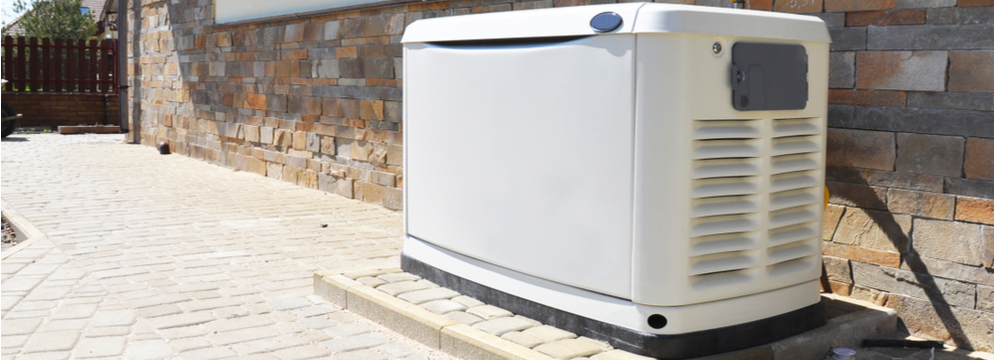Severe weather in August in Lubbock can get pretty ugly, pretty fast. As the South Plains of Texas are conducive to brisk and high winds even during normal conditions (Lubbock annually ranks in the Weather Channel’s Top 10 of windiest U.S. cities), severe weather conditions can cause real damage to trees, structures and, yes, power lines. Armstrong Mechanical has seen our share of high winds and nasty summer storms over the years, and that’s why we offer generator sales and services to our customers.
GENERATORS
When high wind or inclement weather tear down power lines or the electricity is halted in other ways (power surges, etc.), it causes problems for everyone. But it can be especially harmful to our commercial customers. In many cases, the health and comfort of the employees, tenants and customers of these businesses can be impacted. Also, retail businesses or restaurants may endure some financial strains depending on how long the power is knocked out, both in sales and damage to products or goods. This is why generators are a good investment for many commercial business owners. Generators may be installed to immediately turn on and supply electricity for varied periods of time until the utility can be restored.
TYPES OF GENERATORS
The first portable generators were invented in the early 1800s and by the early 1900s, companies such as Siemens, Westinghouse, Kohler and General Electric were designing and manufacturing generators. For the purposes of this blog, here are the kinds of generators that you need to know about.
- Standby Backup Generators. These generators provide a viable, dependable long-term source for electricity and are perfect for business applications. Unlike a portable generator, it is permanently installed on the property and is connected directly to the electrical panel of the property. When the electricity is shut off, a transfer switch automatically disconnects the electrical system of the property off the utility and turns on the generator, which is fed by sources such as diesel, propane or natural gas. Once power is restored, the transfer switch automatically returns the property to the utility. These generators can provide from 7 to 48 kilowatts of power. Prices can range from $3,000 to $30,000 and will require professional installation.
- Portable Generators. Unlike the stationary standby backups, portable generators are mobile and compact enough to fit into a small space and can be relocated without too much trouble. They will only provide power for a few hours to small appliances and usually run on liquid fuel. They can provide from 3 to 10 kilowatts of power and will run around $400 on average.
LUBBOCK PLUMBING, ELECTRIC & AIR PROS
Your friends at Armstrong Mechanical are experienced in helping our commercial customers with all their plumbing, electric and AC needs and stand ready to help if the power goes out. Call us today to learn all about our full line of Kohler generators or visit us on social media.








